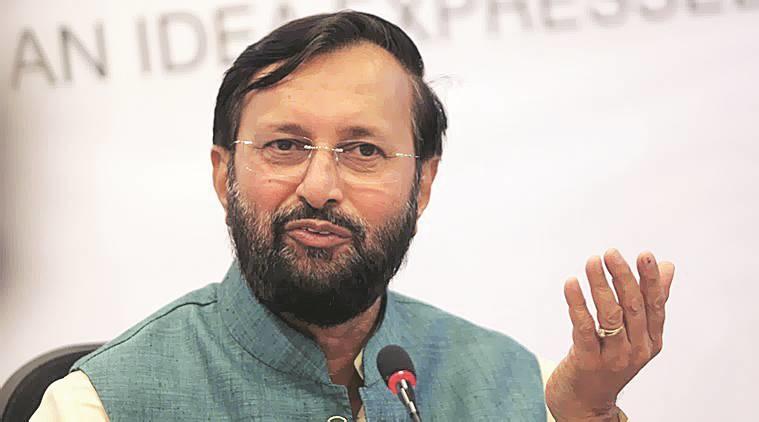BJP Government Plans to Set up Vedic Education Board

Talks of establishing a Vedic Education Board and promoting Sanskrit (against all logic) have resurfaced this year. The government is seeking to provide opportunities of higher education and employment to those who have passed out from the Ved Vidyalayas (Vedic Schools), by making their Ved Bhushan and Ved Vibhushan qualifications equivalent to class 10 and class 12. This is in response to a proposal by the Ujjain-based Maharishi Sandipani Rashtriya Veda Vidya Pratishthan (MSRVVP), as reported by The Economic Times.
Additionally, as per a News18 report, Sanskrit learners from Ved Vidyalayas will soon get recognition from the National Institute of Open Schooling (NIOS). The first batch, from over 6,000 Ved Vidyalayas, is expected to appear for an exam in October 2018.
While there is no problem in promoting Sanskrit and the Vedas as fields of study, and hoping for stable employment afterwards, the over-zealous project of equating these with modern secular and scientific education is problematic to say the least. This should not only be seen as an attempt to replace the “alien” education system imposed on Indians by the British with knowledge systems developed in our civilisation’s antiquity. Rather, this should also be seen as a direct attack on the present education system which promotes critical inquiry, rationality and a scientific temper amongst the students. Further, it is also an attempt to saffronise the school education system in India, in synergy with the changes taking place in the syllabi of schools, in various BJP-ruled states before 2014, and on the national level post 2014.
Also Read: Saints in Schools?
Earlier, Yoga guru Baba Ramdev had suggested the formation of a private Vedic Education Board for promoting Sanksrit schools and colleges, as well as Ved Vidyalayas, but this was rejected by the HRD Ministry on the ground that sanction of such a board would invite similar requests from other unrecognised school boards.
According to a report by The Indian Express, sources said the decision to start a Vedic education board, on the lines of CBSE, is based on the recommendation of Sanskrit experts and representatives of gurukuls and ved pathshalas, who met under the chairmanship of Swami Govindadeva Giri in Bengaluru on January 17 this year. Chamu Krishna Shastry, advisor (languages) to HRD Minister Smriti Irani, had also attended this meeting.
According to a PIB press release dated 02 May 2016:
“The Second Sanskrit Commission was set up on 10thJanuary 2014 … [and] asked to submit its recommendations within one year but it could not submit [it] … and the Commission’s term expired on 9.1.2015. The Ministry of Human Resource Development had constituted a Committee to suggest a long term vision and road map for the development of Sanskrit under the Chairmanship of Shri N. Gopalaswami, Chancellor, Rashtriya Sanskrit Vidyapeetha, Tirupati on 18.11.2015. The Committee has submitted its report to this Ministry [in February 2016].”
It further mentions that the government is “taking all steps for nurturing, protection, propagation, preservation and development of Sanskrit language, literature and rare Shastras, by funding three Sanskrit Deemed Universities viz. Rashtriya Sanskrit Sansthan (RSKS), New Delhi, Rashtriya Sanskrit Vidyapeetha (RSV), Tirupati, Sri Lal Bahadur Shastri Rashtriya Sanskrit Vidyapeetha (SLBSRSV), New Delhi and an autonomous body viz. Maharshhi Sandipani Rashtriya Veda Vidya Pratishthan (MSRVVP), Ujjain.”
Another PIB press release dated 23 March 2018 states, “The [Gopalaswami] Committee had made several recommendations in i) School education, ii) Higher Education, iii) Traditional education at school level, iv) Traditional education at College level, v) Recommendations for Veda Vidya, vi) Preservation, Propagation and Sustenance of Veda Vidya, vii) Schemes for Development of Veda Vidya, viii) Schemes for Development of Sanskrit, ix) Ashtaadashi (Eighteen projects) for sustaining the growth of Sanskrit.”
Also Read: Resist Twin Attacks of RSS on Education
It further states that the Ministry has “forwarded the recommendations to the Heads of all Bureaus/concerned organizations to look into the matter and implement the recommendations which are implementable within the existing policy framework of the Ministry. Further, a Committee under the Chairmanship of Dr. K. Kasturirangan has been constituted for the preparation of New Education Policy which is due to submit its report by 31.03.2018”.
The ‘Westernised’ education system of India has long been a pestilence to the Rashtriya Swayamsevak Sangh (RSS), Vishwa Hindu Parishad (VHP) and other right-wing organisations. According to them, revival of the ‘gurukul’ system of the ancientVedic period is what is needed. For them this ‘Westernised’ education system, ushered in by Lord Macaulay in the 19thcentury, is one of the main reasons for the moral, religious and cultural bankruptcy of the Indian people. While it is widely held that Macaulay introduced English education in colonial India, to recruit Indians to low-level government service jobs requiring western education, and replace the Indian-ness of its people with Western values in order to make the Indian subjects more compliant and servile to the Empire. However, it cannot be overstated how important the exposure given to the people of India by the introduction of a secular (non-religious) and modern (seen in the context of that time) education system was. Nor can it be denied that the monopoly of the Brahmin and other upper-caste men in obtaining education was undermined by the inclusion of the historically excluded sections of Society – Dalits, Adivasis, women etc. – in the field of education.
What was the cause of this monopoly of the upper-caste men on gaining a formal education? It was precisely what the RSS and the right-wing organisations have been advocating for, since decades – the exclusive ‘gurukul’ system. While some previous administrations were also, to varying degrees, sympathetic to this cause, the Modi government has relentlessly tried to go back to this ‘Golden Age’, despite condemnation from and protests of the concerned sections of the populace.
Also Read: Do We Want To Teach Our Children Falsehoods Or What Constitutes Knowledge?: Romila Thapar
Get the latest reports & analysis with people's perspective on Protests, movements & deep analytical videos, discussions of the current affairs in your Telegram app. Subscribe to NewsClick's Telegram channel & get Real-Time updates on stories, as they get published on our website.























